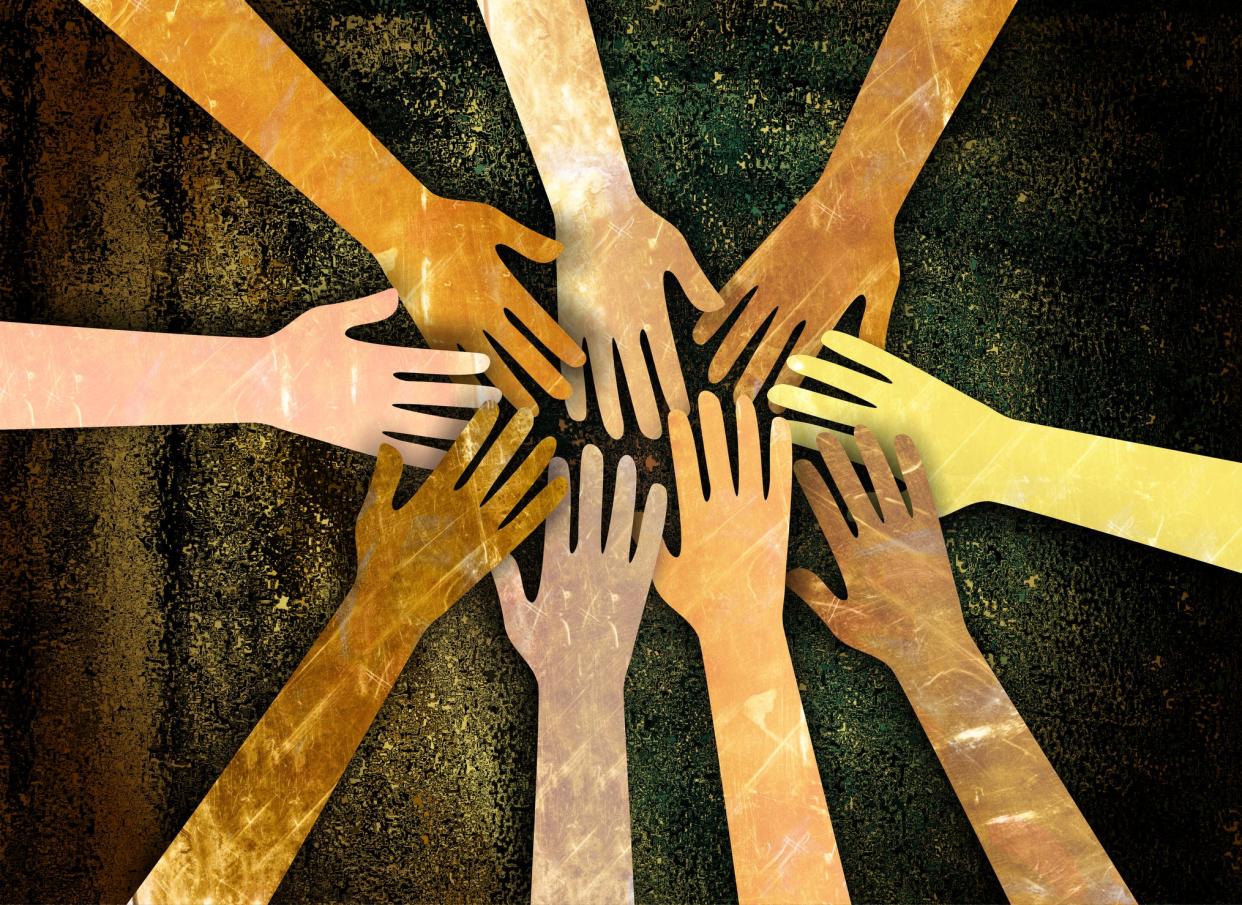Nancy Snow: How being hospitable can help our fractured world

The word "belongingness" has become increasingly common in many colleges and universities. The point is to make everyone feel welcome and to minimize feelings of exclusion and alienation. Students learn more effectively, it’s thought, if they feel safe, valued and supported in their endeavors. Creating the conditions under which students can come to feel this way is no mean feat, especially given the histories of exclusion and negativity that some campuses have shown to members of diverse groups.
What if we thought about society in the same way? That is, how can we create conditions that make everyone in society feel a sense of belonging ― that they’re safe, valued and supported? Civility would be a first step toward this, but more extensive efforts would be needed to make people feel they truly belong. One way of thinking about this is through the lens of ideas about hospitality. In an article about hospitality in the ancient world, the scholar Kevin O’Gorman makes several points.
More: Guest: As ancient wisdom says, empathy can help overcome divides
First, the ancient Greek law and custom of offering hospitality to strangers was known as “love of strangers.” We find the opposite evidenced today by the term "xenophobia" ― fear of strangers.
Second, in the Old Testament, hospitality is connected with the act of creation. God makes us welcome through the creation of the world. God’s hospitality is imitated by many Old Testament figures; indeed, hospitality is central to Old Testament ethics.
Third, in many cultures, being hospitable was a way of paying homage to the gods.
Fourth, hospitality was central to the development of civilization. Being welcoming to strangers forged positive relationships and gave hosts a good reputation. Refusing hospitality or even attacking strangers fomented discord and even warfare.
Finally, true hospitality entails reciprocity: The host is given something in return.
If we want our society to be one in which everyone feels that they belong, that they are safe, valued and supported, civility is not enough. We need to have and act with an attitude of hospitality, that is, we need to be willing to welcome others with open arms, to meet their needs, to listen to their concerns and so on.
Being hospitable in a fractured society is a big step. One person needs to open their heart to another, to share food, time, conversation. With any luck, the recipient of these gifts will reciprocate, or at least acknowledge the gesture with gratitude and thanks. This is not without risks. Our overtures could be rejected. We could be taken advantage of ― others could manipulate or try to exploit our hospitality and generosity.
Despite these pitfalls, hospitality seems to have an inner strength. It appeals to the basic decency and humanity of all involved. The host, in effect, says to the recipient, “I see you and believe your needs are worthy of being met.” The recipient acknowledges the gift and reciprocates. Thus a bond is formed.
More: Guest: We have set ourselves up to be uncivil. It is up to us to reverse that trend
Even after a relationship is ruptured, a hospitable gesture ― offering a gift, sending a card and the like ― can be well met. It can be the first step toward resetting a broken relationship. Let us think about the hospitality we can offer to each other to mend our broken world.

Nancy E. Snow is a professor of philosophy at the University of Kansas. She formerly was a philosophy professor at the University of Oklahoma and director of the Institute for the Study of Human Flourishing.
This article originally appeared on Oklahoman: How being hospitable can help our fractured world

